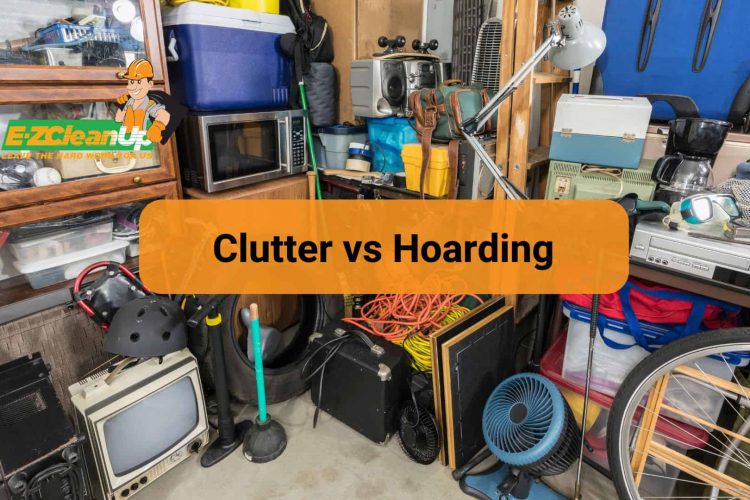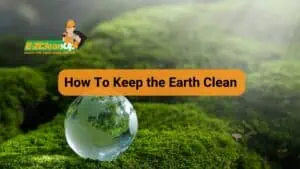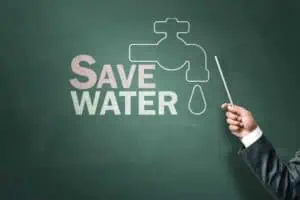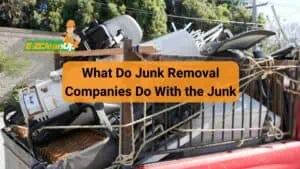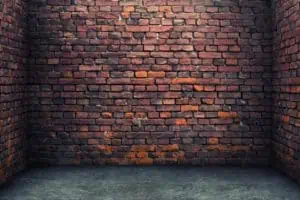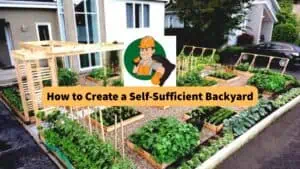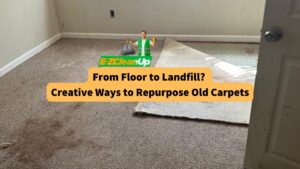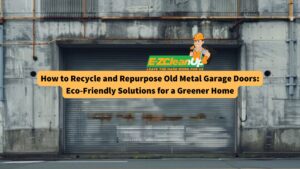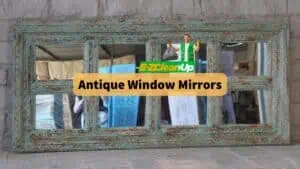Clutter, often temporary, can be managed with simple cleaning, whereas hoarding is a chronic issue disrupting living spaces. It requires therapy and support groups. Hoarding poses serious health and legal risks, and demands comprehensive interventions to ensure safety and improve life quality.
If you want to know more about clutter vs hoarding, read our article below.
What Is Clutter
Clutter is when too many things pile up in your home because they’re not put away right away. Often, these are items you might need or want but haven’t found the right spot for yet. Recognizing clutter is the first step to cleaning up your living space.
Why does clutter happen? Usually, it’s because life gets busy and you don’t have time to tidy up. Sometimes, you might feel unsure about what to keep or let go of, especially if items mean a lot to you emotionally. This can make your home look messy and make it hard to find things when you need them.
Clutter isn’t just a small annoyance—it can really change how you use your space. A cluttered room can feel cramped and stressful, which makes it tough to relax or concentrate. By clearing out things you don’t need and organizing what you keep, you can make your home more welcoming and calm.
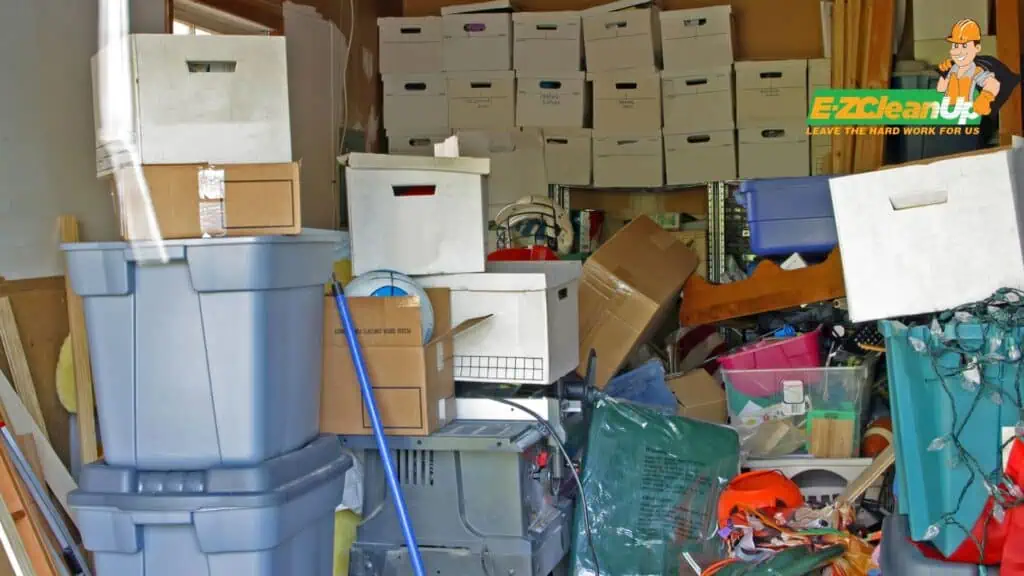
What Is Hoarding
Hoarding disorder is when someone finds it really hard to throw away things, no matter their value. People with this disorder feel they must keep items, and the thought of getting rid of them causes a lot of distress. This makes it tough to use rooms in their homes the way they’re meant to be used because they get too cluttered.
The emotional side of hoarding is deep. It often starts when someone is young and can get worse as they get older. It’s not just about liking to keep things; it’s about feeling really attached to them.
People with hoarding disorder might also feel very anxious about the idea of throwing things away. Sometimes, they have other mental health challenges, like depression or anxiety, which can make the hoarding worse.
Hoarding can fill living spaces so much that they can’t be used properly. This isn’t just inconvenient; it can be dangerous. It can cause risks like fires and even break health rules.
It’s tough on personal relationships, too. Family and friends might get upset about the mess, and the person hoarding might stop inviting people over because they’re embarrassed.
Key Differences between Clutter and Hoarding
Clutter is usually less serious and temporary. It’s often just a mess you can clean up with some regular tidying.
Hoarding, though, is a long-term problem where people keep too many items, no matter if they’re useful or not. This can make homes unsafe and very dirty, and you might even need experts to help clean up.
Emotional Connections
When it’s just clutter, you might be a bit annoyed, but you don’t feel a deep bond with the stuff. Hoarding is different. People with hoarding disorder often feel a strong emotional tie to their items. They see them as too special to throw away. This could be because of memories linked to these items or fear of losing part of themselves.
Effects on Daily Life
Clutter doesn’t usually mess up your life too much; you can manage it. Hoarding, on the other hand, can really disrupt your day-to-day activities. It can fill up your space so much that you can’t use it properly anymore, like not being able to cook in your kitchen or sleep in your bedroom.
This can cause a lot of stress and hurt your relationships. This can make it necessary to get help from professionals like therapists or social workers.
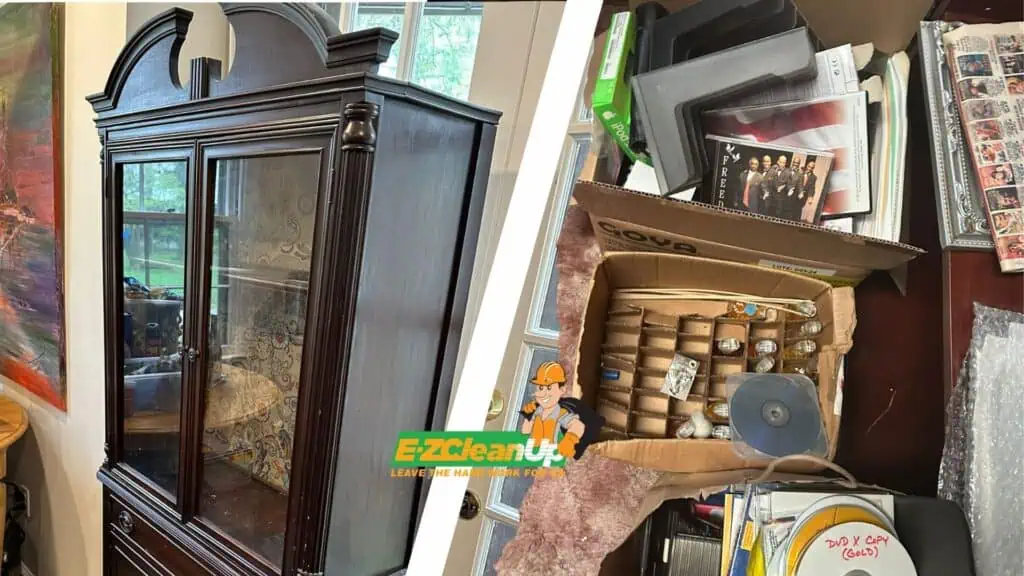
Steps to Address Clutter
You can address clutter with these strategic steps that can help you transform your living spaces into a more functional and pleasant environment:
Start Small
Begin by sorting out easy spots like a drawer, a shelf, or your kitchen counter. Clearing these areas can give you a quick sense of progress and motivate you to tackle bigger tasks.
Use the “Five Second Rule”: if you haven’t used something recently, maybe it’s time to say goodbye to it.
Keep It Up
Make cleaning and organizing a regular thing. Whether it’s once a week or once a month, stick to a schedule that works for you. Keeping up with clutter regularly stops it from piling up and feels less daunting over time.
Use Organizers
Tools like shelves, boxes, and bins can really help keep your things tidy. Even using apps to keep track of what you have can make a big difference.
Give everything a home—like putting all your tools in one place or keeping all your paperwork together. This makes it easier to find things and keeps clutter from coming back.
Strategies for Managing Hoarding
These strategies, when combined, provide a comprehensive approach to managing hoarding disorder:
Getting Professional Help
Seeking help from mental health experts is key for managing hoarding disorder effectively. Cognitive Behavioral Therapy (CBT) is one of the best treatments. It deals with the thoughts and feelings that lead to hoarding.
This therapy also helps people learn better ways to handle their need to save items. Therapists can offer a supportive space and set goals that are realistic and don’t overwhelm, which makes it easier to start decluttering.
Finding Support
Joining support groups can be really helpful. These groups provide a chance to meet others facing similar challenges, share tips, and get emotional support.
This can make a big difference, especially since hoarding can be lonely. Support groups help people feel less isolated and more motivated to clean up their spaces.
Taking It Slow
When it comes to clearing out clutter, it’s best to go slow. This means taking small steps regularly so the process isn’t too much all at once.
Creating a simple plan for how to sort and store items can make decisions easier and reduce the stress of throwing things away. Setting up a regular cleaning schedule and having specific places for different items can also help keep spaces tidy over time.
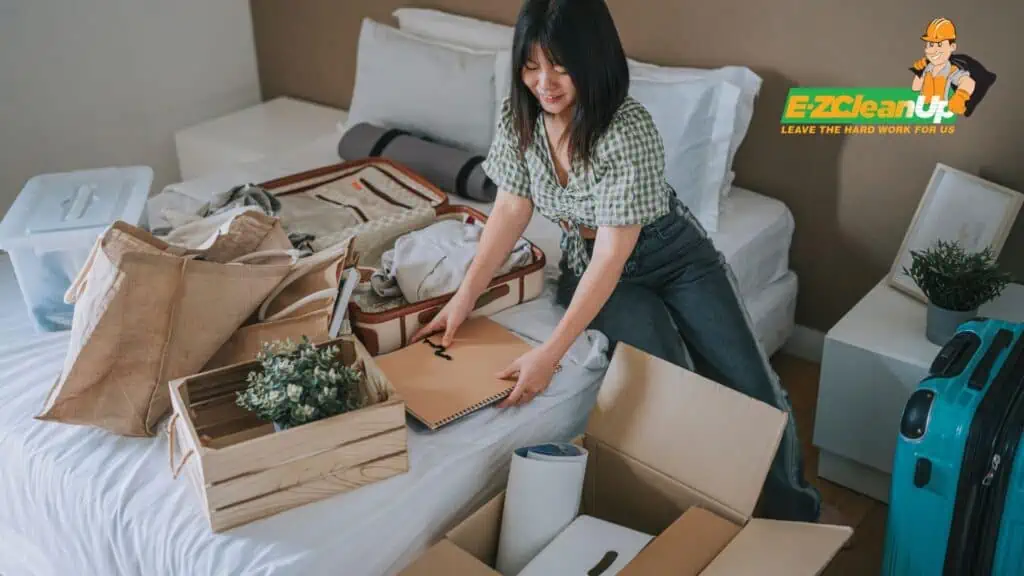
Legal, Health, and Other Considerations
Understanding the following risks underscores the need for early intervention and support for individuals struggling with hoarding behavior:
Understanding Health Risks
Hoarding can seriously increase the risk of falls, injuries, and other health problems, especially for older adults or those who can’t move around easily. Clutter makes it hard to walk through rooms and can cause accidents.
It also creates dirty conditions that might lead to breathing problems, infections, and more. Plus, if there’s too much stuff, it could catch fire, which makes it very dangerous because it blocks the way out.
Legal Risks
Hoarding might also get you into legal trouble. If someone’s home is too cluttered, they might get kicked out, especially if they’re renting and it breaks their lease terms. Sometimes, if the clutter causes safety or health problems, housing authorities or firefighters might need to step in.
In serious situations, if the hoarding is dangerous to children, older people, or those with disabilities living there, social services might have to help protect them. This could even lead to court cases to find someone who can take care of them.

Finding Help
If you or someone you know needs help with hoarding, there are lots of resources available. Local and online options like the International OCD Foundation and the National Association of Productivity & Organizing Professionals can connect you to therapists and professional organizers who understand hoarding.
These groups can offer the right support to start cleaning up and getting better.
Learn More
It’s also a good idea to learn more about hoarding. Reading books, visiting websites, and attending online classes also provide good advice. These are easily accessible whenever you need them. Learning more can help you or someone else start to tackle hoarding bit by bit.
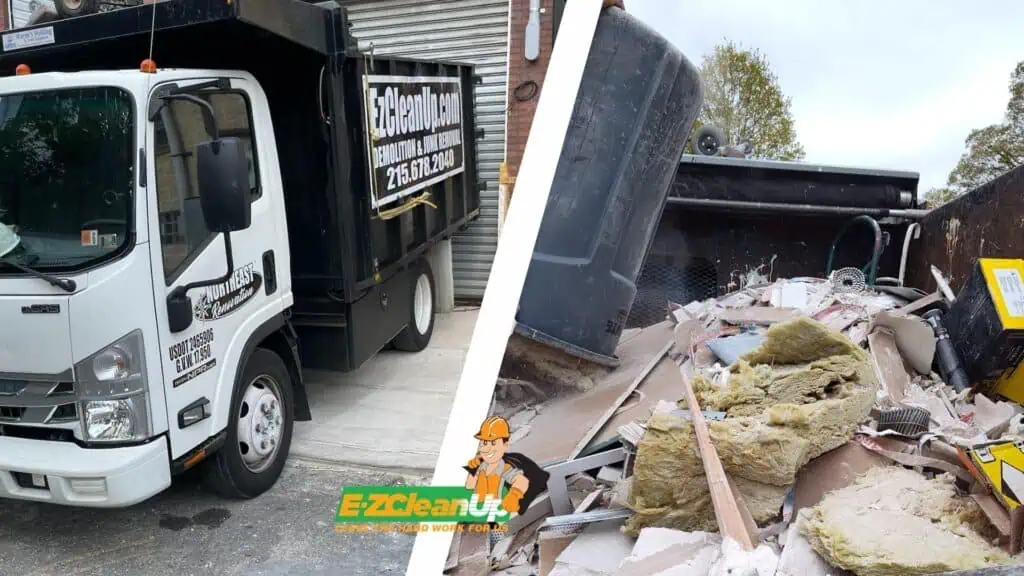
Start Fresh: EZ CleanUp Handles Clutter and Hoarding
Both clutter and hoarding can overwhelm your living spaces. They can make it difficult to enjoy your home or operate efficiently.
EZ CleanUp provides a range of services designed to tackle these issues head-on, from disposing of unwanted items to comprehensive site cleanups. Reach out to us to learn more about how we can assist you.

